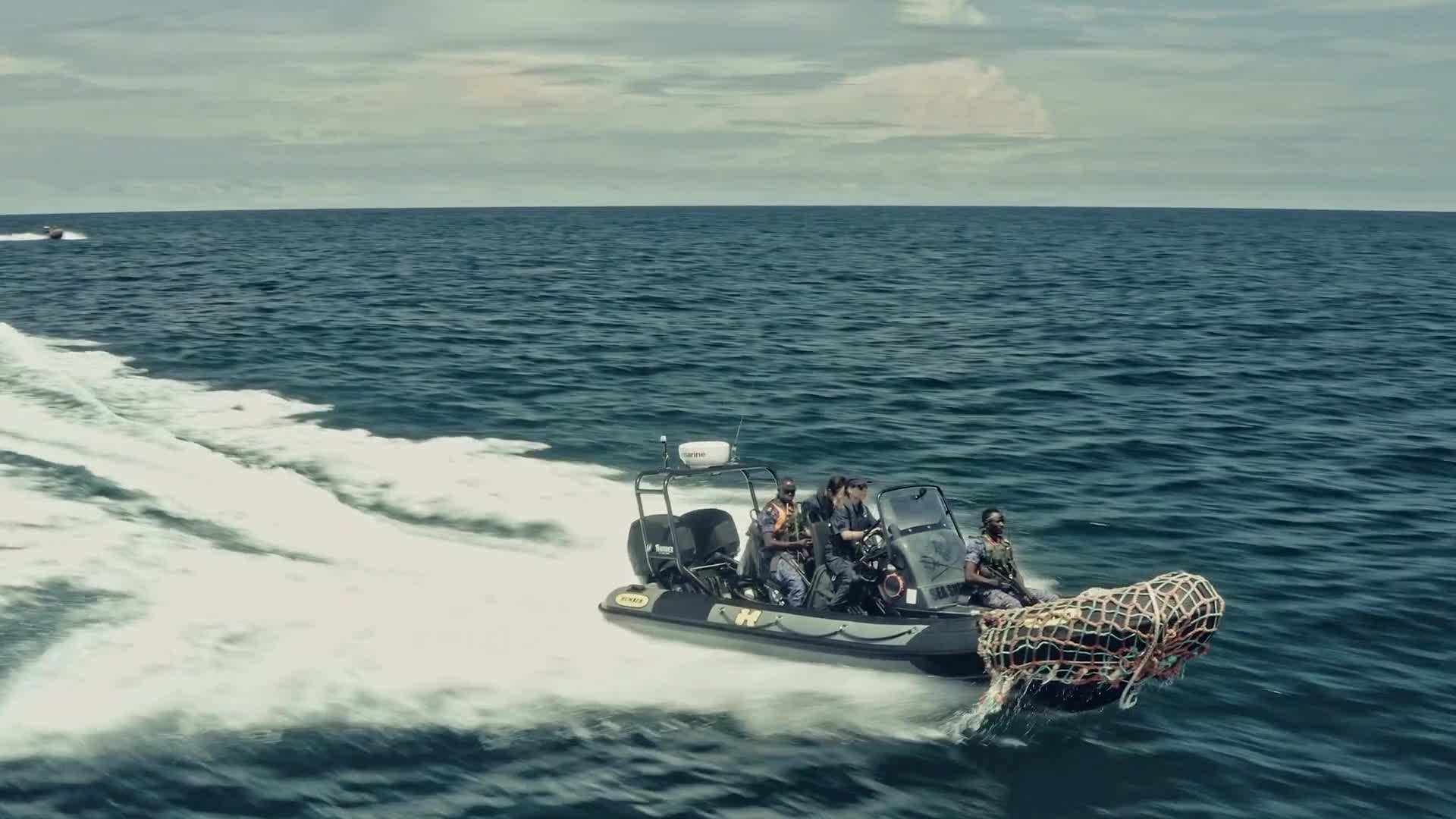India
A Growing Goliath in Shrimp
The True Price of a Cheap Appetizer

The True Price of a Cheap Appetizer
At sea and on land, the country dominates, but with what environmental and human cost?
Tired of migrants arriving from Africa, the E.U. has created a shadow immigration system that captures them before they reach its shores.
The most important place on earth that virtually no one has ever heard of.

The Outlaw Ocean is a riveting anthology podcast that explores the most lawless place on earth — the vast unpoliceable ocean.
Costa Rica’s fuel subsidies are funding widespread poaching and overfishing in supposedly protected waters.
The seafloor is thought to hold trillions of dollar’s worth of metals and the Pacific-island nation of Nauru is making bold moves to get a jump on the global competition to plumb these depths.
While companies dump carbon into the air for free, the lungs of the globe suffer. The current climate crisis barely even considers the oceans.
No other country comes close in the size of China's fishing armada, but the dominance and reach of this fleet raises broader questions about how, why and at what cost China has put so many boats on the water.
The past six months have thrown an unusual amount of attention on an otherwise invisible workforce.
With more than 80 percent of the world’s fish stocks at or near collapse, some marine conservationists suggest that aquaculture might help counter the problem of overfishing.
The international fishing industry is ripe with corruption bred by corporate anonymity.

This 10-part short film series chronicles a gritty cast of characters including traffickers and smugglers, pirates and mercenaries, shackled slaves and vigilante conservationists.
What can we do to mitigate the mayhem offshore?
Among the investigations covered in The Outlaw Ocean book is that of the Murder at Sea story, which reveals a slow-motion slaughter of at least four men caught on camera.
Behind the tragedy of the recent deadly explosion in Beirut is the more pervasive travesty of the abandonment of ships, seafarers and cargo.
Off the coast of Italy, cruise ships are being repurposed as holding pens for migrants rescued from the Mediterranean.
The high seas remain an often-dystopian realm where the scant laws that do exist are frequently ignored. This has led to overfishing, illegal dumping, and other environmental abuses that are closely linked to human rights violations aboard thousands of vessels.
Every year, tens of thousands of migrants to Thailand are sent to brutal lives at sea.
From bullying and sexual assault to squalid living conditions and forced labour, working at sea can be a grim business—and one deep-sea fishing fleet is particularly notorious.
In the small coastal country, an exploding industry has led to big economic promises, and a steep environmental price.
The absurd and remarkable story of Sealand, a “micronation” on an eerie metal platform, tells us plenty about libertarianism, national sovereignty, and the lawlessness of the ocean.
For 110 days and across two seas and three oceans, crews stalked a fugitive fishing ship considered the world’s most notorious poacher.
Men who have fled servitude on fishing boats recount beatings and worse as nets are cast for the catch that will become pet food and livestock feed.
Desperate North Korean fishermen are washing ashore as skeletons because of the world’s largest illegal fleet.